Did you know that millions of women worldwide suffer from hormonal imbalances that affect their quality of life? This is not just a health issue; it’s a deeply personal one that touches every aspect of a woman’s life, from her feelings and relationships to her overall wellbeing.
In our fast-paced life, many of us are disconnected from our inner selves, leading to hormonal chaos. The relationship we have with ourselves forms the foundation for our hormonal health. It’s a journey that takes time but yields profound benefits. By reconnecting with ourselves, we can address hormonal imbalances in a meaningful way.
Key Takeaways
- Self-connection is critical for hormonal balance.
- Modern life often leads to disconnection from our inner selves.
- Our relationship with ourselves affects hormonal health.
- Reconnecting with oneself can address hormonal imbalances.
- This journey, though taking time, has profound health benefits.
The Hidden Link Between Hormones and Self-Connection
The intricate relationship between our hormones and self-connection is often overlooked, yet it plays a crucial role in our overall health. Our mental and emotional state significantly influences our hormonal balance, and vice versa. When we’re disconnected from ourselves, it can lead to hormonal imbalances that affect various aspects of our life.
How Disconnection Manifests in Hormonal Imbalances
Chronic disconnection from our self can trigger ongoing stress responses in the body, disrupting hormonal balance. This disconnection can manifest as various hormonal imbalances, affecting our energy levels, mood, and overall well-being. Ignoring our body‘s signals and needs directly impacts our endocrine system and hormonal health, potentially leading to issues like anxiety.
The Science Behind Stress, Self-Awareness and Hormonal Health
Research shows that self-awareness practices can reduce cortisol and stress hormones, promoting hormonal regulation. By being more mindful and aware of our thoughts, emotions, and physical sensations, we can better manage stress and support our hormonal health. This connection between mindfulness, reduced anxiety, and improved hormonal regulation highlights the importance of self-connection in maintaining a healthy hormonal balance throughout life.
Understanding True Self-Connection for Women
Embracing self-connection is a powerful step towards achieving hormonal healing and living a more authentic life. True self-connection involves understanding and aligning with our inner selves, which is crucial for women’s health and well-being.
The Three Pillars: Self-Awareness, Self-Acceptance, and Self-Alignment
Self-connection is built on three essential pillars:
- Self-Awareness: Being conscious of our thoughts, feelings, and bodily sensations in the present moment.
- Self-Acceptance: Embracing all parts of ourselves without judgment, even the aspects we find challenging.
- Self-Alignment: Making choices that honor our true needs and values rather than external expectations.
By cultivating these pillars, women can develop a deeper understanding of themselves and their needs, leading to improved hormonal health.
Why Most Women Struggle with Self-Connection in Modern Life
In today’s fast-paced world, women face numerous challenges that hinder self-connection. Busy schedules, digital distractions, and the constant pull of others’ needs can create significant barriers.
Many women spend more time taking care of others than connecting with themselves, leading to disconnection and potential hormonal imbalances. Societal pressures and multiple roles further complicate this issue, making it difficult for women to prioritize their own needs and maintain self-connection.
By understanding these challenges and the importance of self-connection, we can begin to make changes in our daily lives to prioritize our own well-being and foster a deeper connection with ourselves.
Signs You’re Disconnected from Yourself
Self-disconnection can reveal itself through a range of physical, emotional, and mental signs. When we’re out of touch with our inner selves, it can affect our overall well-being and quality of life.
Physical Symptoms
Our body often communicates through physical sensations when we’re not paying attention to our deeper needs. Some common physical symptoms of self-disconnection include chronic fatigue, unexplained pain, digestive issues, and hormonal symptoms. Ignoring our energy levels and pushing through fatigue can disrupt hormonal rhythms, leading to imbalances.
Emotional and Mental Indicators
Emotional and mental indicators of self-disconnection can be just as telling. We might feel numb, have difficulty identifying our feelings, experience constant anxiety, or exhibit emotional reactivity. Disconnected women often report racing thoughts, difficulty being present in the moment, and feeling mentally foggy. These signs can directly impact our hormonal balance through stress pathways and the HPA axis.
Impact on Hormonal Balance
The signs of disconnection can have a significant impact on our hormonal balance. When we ignore our body’s wisdom, it can create a vicious cycle that further disconnects us from our inner selves. Recognizing these signs is the first step toward healing both the disconnection and the resulting hormonal issues.
| Signs of Disconnection | Physical Symptoms | Emotional/Mental Indicators |
|---|---|---|
| Chronic Fatigue | Digestive Issues | Feeling Numb |
| Unexplained Pain | Hormonal Symptoms | Constant Anxiety |
| Racing Thoughts | Mental Fog | Emotional Reactivity |
7 Powerful Practices for Deepening Self-Connection
In today’s fast-paced world, cultivating self-connection is more important than ever, and it starts with simple yet powerful practices. As we navigate through our busy lives, it’s easy to lose touch with our inner selves. However, by incorporating these practices into our daily routine, we can foster a deeper connection with ourselves and improve our overall well-being.
Creating Sacred Alone Time
Creating sacred alone time is essential for self-connection. It’s about setting aside a few minutes each day to be with yourself, free from distractions. This could be as simple as taking a warm bath, meditating, or simply sitting in silence. By doing so, we create a space for self-reflection and introspection, allowing us to tune into our thoughts and emotions.
Daily Self Check-Ins and Body Scanning
Daily self check-ins and body scanning are powerful tools for increasing our awareness of physical sensations and emotions. By taking a few minutes each day to scan our body and check in with our emotions, we can better understand our needs and respond to them in a more compassionate way. This practice helps us develop a greater sense of self-awareness and can lead to improved emotional regulation.
Mindfulness and Present Moment Awareness
Mindfulness and present moment awareness are key practices for deepening self-connection. By focusing on the present moment, we can let go of worries about the past or future. Mindfulness practices such as deep breathing, meditation, or simply paying attention to our senses can help us stay grounded and centered. This, in turn, can lead to a greater sense of peace and well-being.
Journaling for Self-Discovery
Journaling is a powerful practice for self-discovery and processing thoughts and feelings. By putting our thoughts and emotions into words, we can gain a deeper understanding of ourselves and our experiences. Journaling can also help us identify patterns and areas for personal growth, allowing us to make positive changes in our lives.
Following Your Energy and Intuition
Learning to follow our energy and intuition is crucial for maintaining a healthy connection with ourselves. This involves paying attention to our body’s signals and honoring our needs, rather than pushing through when we’re feeling tired or drained. By listening to our intuition, we can make more informed decisions that align with our values and goals.
Unplugging from Digital Distractions
In today’s digital age, it’s easy to get caught up in social media and other digital distractions. However, unplugging from these distractions is essential for deepening self-connection. By setting boundaries around our digital use, we can create space for more meaningful activities and interactions, leading to a greater sense of connection and fulfillment.
Movement Practices That Foster Body Connection
Engaging in movement practices such as yoga, dance, or walking in nature can help foster a deeper connection with our bodies. These practices encourage us to tune into our physical sensations and cultivate a greater sense of body awareness. By doing so, we can improve our overall well-being and develop a more positive body image.
| Practice | Benefits | Tips for Implementation |
|---|---|---|
| Creating Sacred Alone Time | Self-reflection, introspection | Start with 5-10 minutes a day, be consistent |
| Daily Self Check-Ins and Body Scanning | Increased self-awareness, emotional regulation | Practice regularly, be patient with yourself |
| Mindfulness and Present Moment Awareness | Reduced stress, greater peace | Use mindfulness apps, practice deep breathing |
By incorporating these seven practices into our daily lives, we can deepen our self-connection and improve our overall well-being. It’s not about achieving perfection but rather about making consistent progress and being intentional with our time and energy. As we cultivate a greater sense of self-connection, we can experience a more profound sense of peace and fulfillment in our lives.
How Self-Connection Transforms Hormonal Health
As we deepen our self-connection, we unlock powerful pathways that transform our hormonal health. This transformation occurs through multiple avenues, ultimately leading to a more balanced and harmonious life.
Self-connection practices have a profound impact on our stress response and cortisol regulation. By being more attuned to our body and emotions, we can better manage stress, leading to more balanced cortisol levels. This balance has a cascading effect on other hormones, including thyroid, insulin, and sex hormones, promoting overall hormonal balance.
Reduced Stress Response and Cortisol Regulation
When we practice self-connection, we reduce our chronic stress response. This reduction helps regulate cortisol levels, which is crucial because cortisol imbalance can disrupt other hormonal functions. By managing cortisol, we create a more stable hormonal environment.
Improved Emotional Regulation and Hormonal Balance
Self-connection also enhances our emotional regulation, directly impacting hormonal balance through neuroendocrine pathways. By paying attention to our emotional states, we can prevent the hormonal disruption caused by chronic stress and anxiety. This awareness allows us to make lifestyle adjustments that support hormonal balance.
Enhanced Body Awareness and Earlier Detection of Imbalances
Moreover, self-connection fosters body awareness, enabling us to detect subtle hormonal imbalances earlier. This early detection is crucial as it allows us to make timely lifestyle adjustments, preventing minor issues from becoming serious problems. By being more in tune with our body, we gain clarity on which interventions are truly helping versus harming our hormonal health.
To illustrate the impact of self-connection on hormonal health, let’s consider the following table:
| Self-Connection Practice | Impact on Hormonal Health | Benefit |
|---|---|---|
| Reduced Stress Response | Cortisol Regulation | More balanced hormonal environment |
| Emotional Regulation | Hormonal Balance | Prevents hormonal disruption |
| Body Awareness | Early Detection of Imbalances | Timely lifestyle adjustments |
By deepening our self-connection, we not only improve our hormonal health but also enhance our overall well-being. This approach complements medical care, providing a holistic path to hormonal healing.
Conclusion: Self-Connection for Hormonal Healing
As we reflect on the importance of self-connection, it becomes evident that this practice is foundational to our hormonal health and happiness. The journey of self-connection is not a destination but a continuous path that evolves over time, influencing our every day life in profound ways. By making self-connection a practice, we not only improve our hormonal balance but also enhance our overall well-being. It’s about spending time to pay attention to our inner wisdom and making sure we’re aligned with our true purpose. Even small moments of connection every day can lead to significant healing over time. We encourage you to start or deepen your self-connection practice today, trusting the process and embracing the joy and peace it brings to your life.










